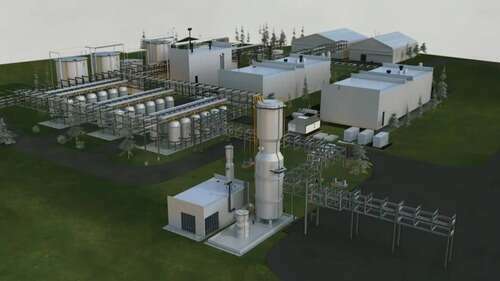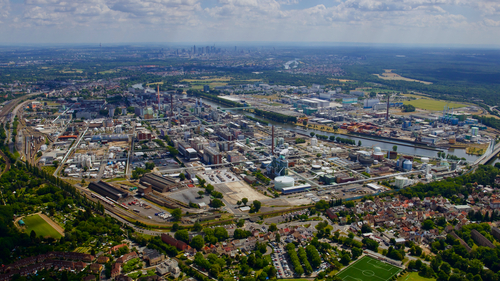Zero-Carbon Lithium: How Vulcan's Lionheart Project Is Revolutionizing Battery Production
The Vulcan Lionheart Project is a crucial initiative by Vulcan Energy Resources to establish a domestic, sustainable, and carbon-neutral supply chain for lithium in Europe. The project's unique approach involves an integrated system that produces both battery-grade lithium and renewable energy from geothermal brine in the Upper Rhine Valley.
Project Development Regions
Vulcan is focusing its project development in four regions within the Upper Rhine Valley:
- Pfalz (Phase One): The initial phase of the project, known as Lionheart, is centered here.
- Kurpfalz (Future phase): A planned future expansion area.
- Hessen (Future phase): Another future expansion area.
- Ortenau (Future phase): A third future expansion area.
The company holds 17 granted licenses, covering a total of 2,234 km² in the Upper Rhine Valley.
Project's Core Technology and Process
The project uses a two-stage process:
- Geothermal and Lithium Extraction Plant (G-LEP): This plant extracts lithium chloride (LiCl) from the geothermal brine. The brine is pumped from deep underground, and its natural heat is used to generate renewable power and heat for local communities. The cooled, lithium-rich brine then undergoes a Direct Lithium Extraction (DLE) process using a proprietary adsorbent, VULSORB®, to pull out the LiCl. The lithium-depleted brine is then reinjected into the reservoir.
- Central Lithium Plant (CLP): The LiCl solution from the G-LEP is transported to the CLP, where it is converted into battery-grade lithium hydroxide monohydrate (LHM). This conversion happens through electrolysis, a process that requires significant energy. By having the CLP in close proximity to the G-LEP and leveraging the renewable geothermal energy, the entire process avoids the use of fossil fuels and significantly reduces its carbon footprint.
Synergies with LiCl and Nobian
A key aspect of the project is its strategic partnership with Nobian, a major European chlor-alkali producer. This collaboration creates significant synergies:
- Expertise in Electrolysis: Nobian has extensive, long-standing expertise in industrial electrolysis and the operation of chlor-alkali plants. Vulcan's process for converting LiCl to LHM also uses chlor-alkali-type electrolysis cells, making Nobian's experience and know-how invaluable.
- By-product Utilization: The electrolysis process at the CLP produces hydrochloric acid (HCl) as a saleable by-product. Being located in the same industrial park as Nobian and other chemical companies allows for potential synergies in the utilization or offtake of this HCl, creating a more circular and efficient industrial ecosystem.
- Shared Infrastructure: The CLP is planned to be located at the Höchst Industrial Park in Frankfurt, a major chemical hub. This location provides access to shared infrastructure and services, such as power and utilities, offered by the industrial park operator, Infraserv. This further streamlines operations and reduces capital expenditure.
Li Production for Battery Purposes
The ultimate goal of the Vulcan Lionheart Project is to produce a sustainable, local source of lithium for the rapidly growing European electric vehicle (EV) battery industry. By producing LHM domestically, the project directly addresses Europe's reliance on imported lithium and strengthens its raw materials independence. The target capacity for Phase One is 24,000 tonnes per annum (tpa) of LHM, which is enough to supply batteries for approximately 500,000 EVs annually. The project has already secured offtake agreements with major car manufacturers like Stellantis and Renault, ensuring a market for its product.
Timeline and Funding
The project has received significant grant funding from the German government and has been granted "Strategic Project" status by the EU, which helps with permitting and financing. Construction of the first new well for Phase One began in May 2025, with construction of the main facilities planned to begin in early 2026.
Categories
Investments
2024-01-01
at Industriepark Höchst (DE)Chemical substances
Countries
Companies
Latest news
Hycamite’s technology to decarbonize shipping awarded AiP by industry leader DNV
Kokkola Industrial Park →Hycamite’s proprietary Thermo-Catalytic Decomposition (TCD) technology offers a new approach to producing clean hydrogen by breaking down methane, the primary component of liquefied natural gas (LN...
Clariant catalysts will power the Ecoplanta: Europe's first waste-to-methanol plant
Chemmed Cluster Tarragona →Repsol is building Europe’s first plant to produce renewable methanol from urban waste The facility will use Enerkem gasification technology to produce 240 KTA of methanol Clariant will supply cata...
Lilly plans to build a new $3 billion facility to boost oral medicine manufacturing capacity in Europe for patients worldwide
Netherlands site will bring 500 manufacturing and 1,500 construction jobs while further strengthening Lilly's global supply chain
Ports of Duisburg and Rotterdam advance energy transition together
Port of Rotterdam →With this LoI, the two major European logistics hubs reinforce their goal of jointly developing sustainable transport corridors via waterways as well as future-oriented initiatives for the energy t...



